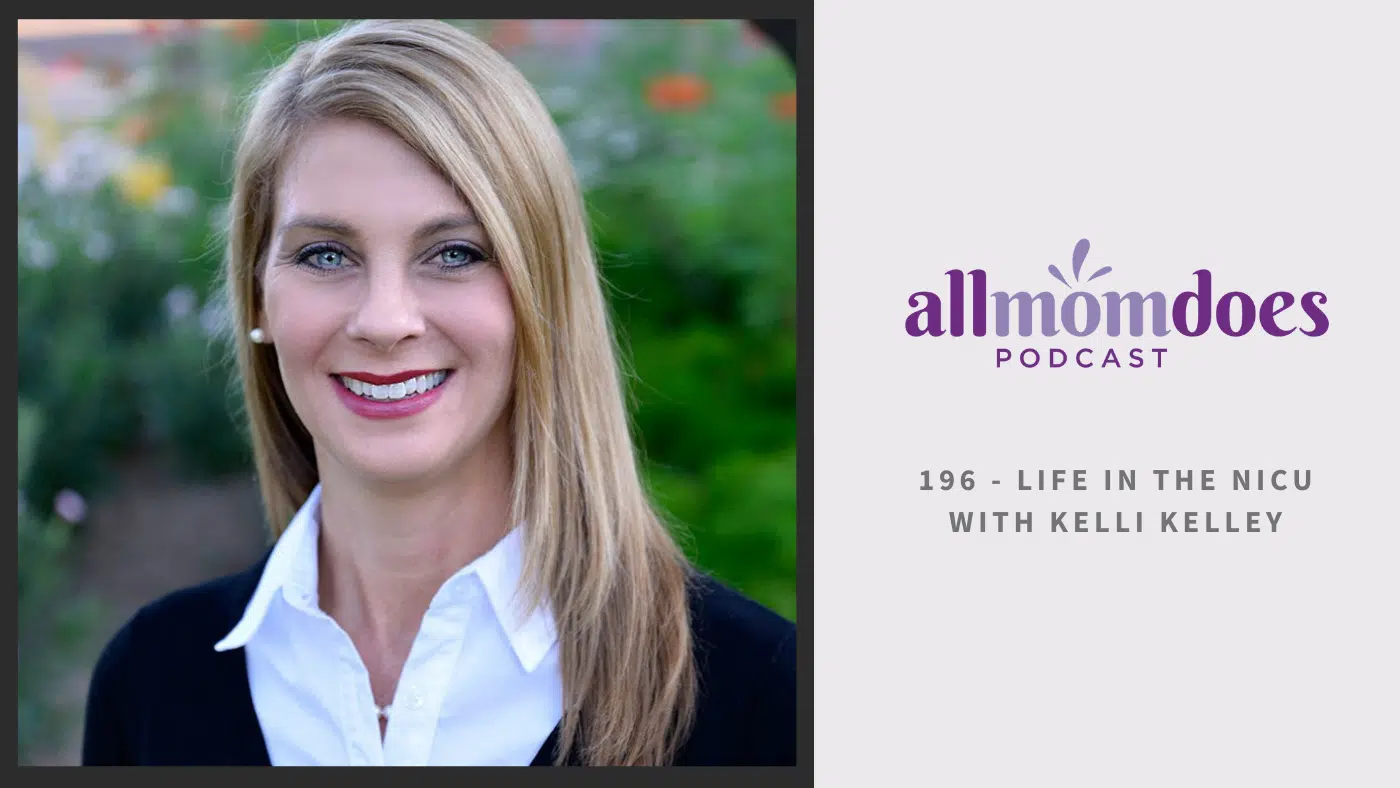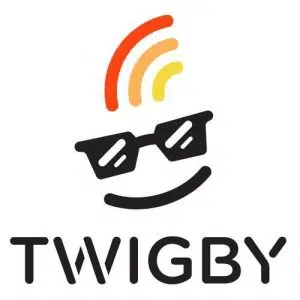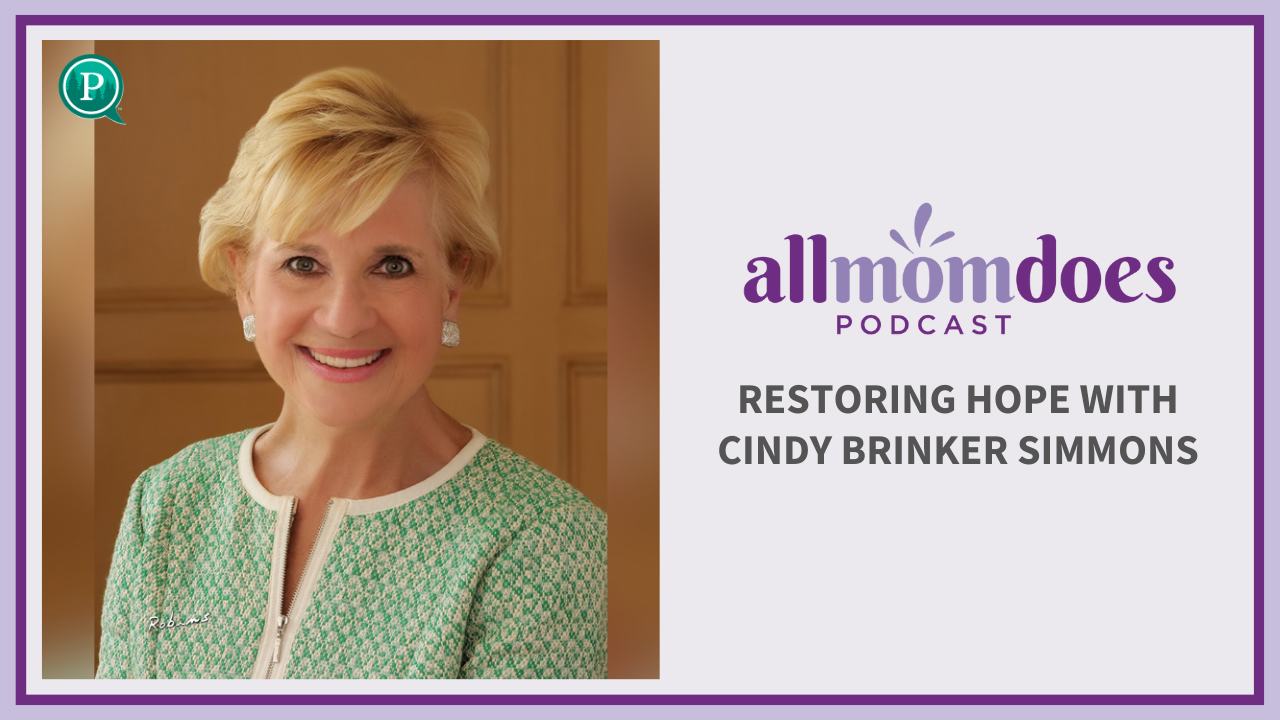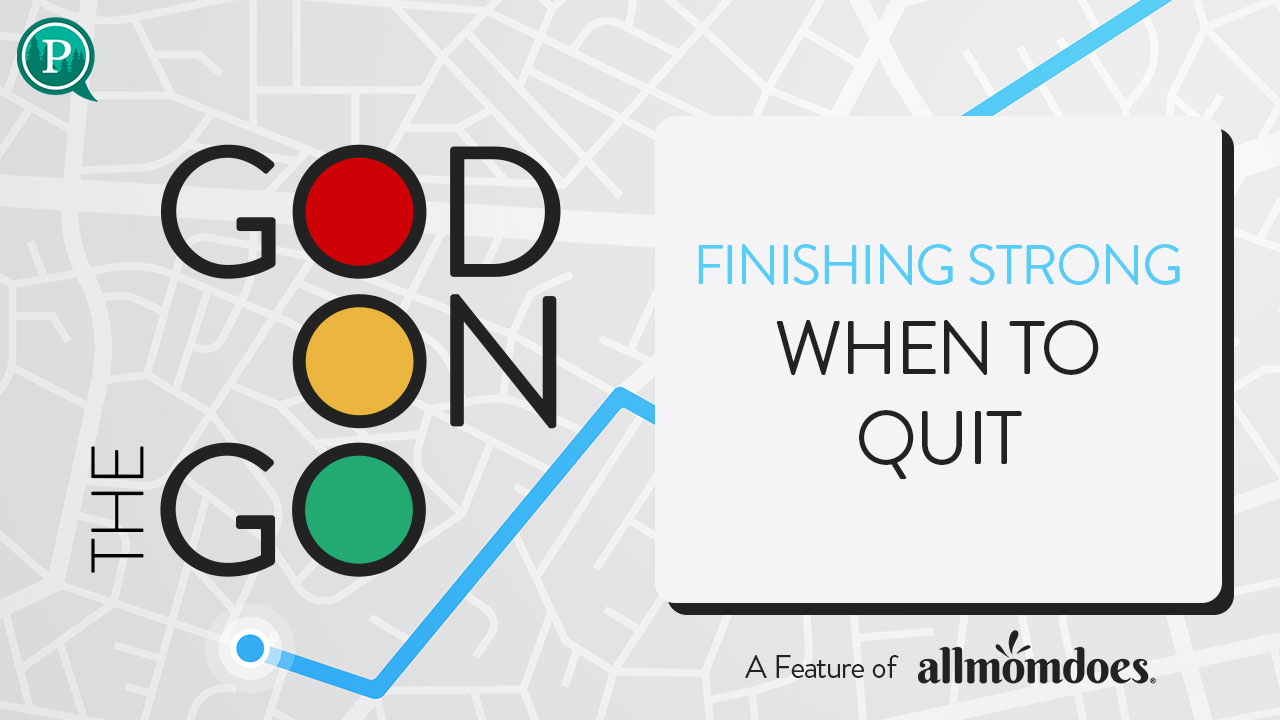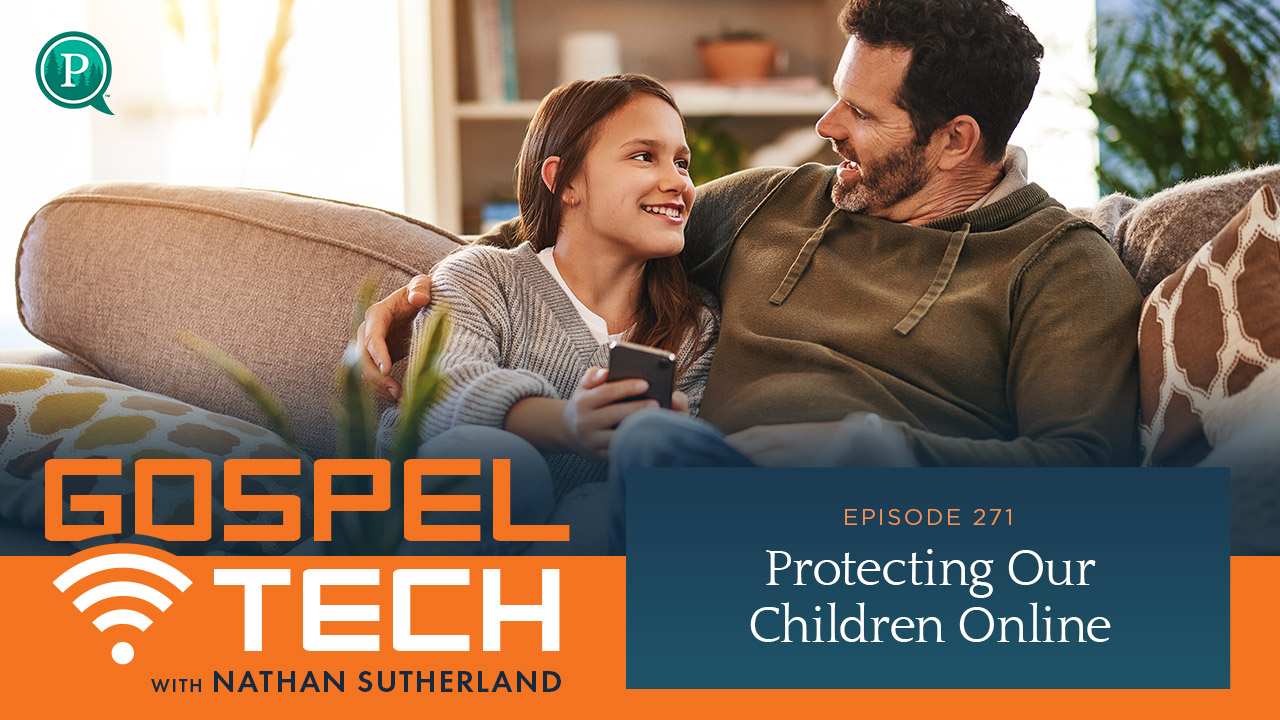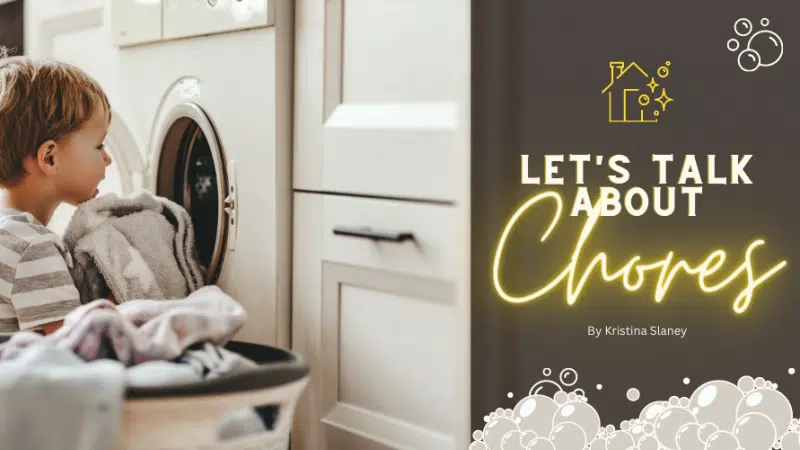Her pregnancy was picture perfect until she unexpectedly went into labor at 24 weeks. Kelli Kelley joins Julie Lyles Carr to talk about the mental and emotional needs of moms and dads who are going through the neonatal intensive care unit experience with their babies, and the life-changing organization she started as a result of her own experience.
Interview Links:
The AllMomDoes Podcast is powered by Twigby
Transcription:
Julie Lyles Carr: You’re listening to the AllMomDoes podcast where you’ll find encouragement, information and inspiration for the life you’re living, the kids you’re raising, the romance you’re loving, and the faith you’re growing. I’m your host, Julie Lyles Carr. Let’s jump into this week’s episode.
Today on the AllMomDoes podcast I have Kelli Kelley on. Yes, she has two first names or two last names, depending on how you want to look out. I have Kelli Kelley on. Her story is going to be incredible for you to experience because when she was expecting her first child, she went through something she never anticipated it. Launched her into a world she had not experienced before and now, these years later, it’s allowed her to do work that she never thought she would be doing. So, Kelli Kelley, thank you so much for being on the podcast today.
Kelli Kelley: I am delighted to be here. Thank you for inviting me.
Julie Lyles Carr: Now, I know your story because we’ve gotten to be friends. We know each other. You’re here in the Austin area where I am.
You do some incredible work across the nation that is hinged on something you experienced when you became a mom for the first time. So, take us back and talk to us about that first pregnancy and your first birth experience and what happened.
Kelli Kelley: Well, it’s been 21 years ago, but it feels like yesterday. I often have a really hard time even today telling the story without getting very emotional. It was a very difficult experience, but when you know, thankful now for the opportunity to take something so challenging and turning it into something to help others. So again, thank you for inviting me to share my story. But you know, it was a first pregnancy, and I was so excited to you know, finally be wearing maternity clothes.
I remember having a really cute outfit that day and I had worked a full day at the PR agency where I was a manager and you know, it happy and healthy and everything was going just as planned and towards the end of the day, I didn’t feel real great. And I was kind of having some cramping and I just felt really tired. And so I decided I would leave work just a little early and try to beat the traffic and get home to rest. And as I took the elevator down the pains were a little stronger. And I started to ask someone, you know, a guy that was a first time for me to be pregnant and I hadn’t even really been to any classes yet.
I was reading what to expect when you’re expecting. Nothing had really prepared me. I knew there were some things about Braxton Hicks, but I wasn’t sure if that’s what I was experiencing, but decided just to, again, wanting to beat the traffic. And so got up on the highway and all I could see were taillights. There had already been an accident and I knew it was going to be a long drive. And that’s really when the pains became stronger and closer together. And again, I really had nothing to judge it by. I did not know how far apart contractions were supposed to be and what it would feel like. And I just remember continuing to think, you know, if I could just get home. If I can just get home, I’ll be okay.
But I remember turning the radio off and on and adjusting my seat and turning the air conditioning off and on. It was a hot August day. And even thinking about, you know, if I took this exit, I know there’s a hospital, but then thinking if I go to the hospital, they’re going to tell me everything’s fine and send me home.
So, continue to drive and you know, it took almost an hour and I finally got home, and I wasn’t going to tell my husband. Now he was dressed and ready to go play in an intramural softball game. And I, you know, had never wanted to be the complaining pregnant wife. I was just going to, you know, push through a full term, healthy pregnancy. You know, work the day, I deliver and back at work six weeks after, you know, it was kind of
how I’d tackled my whole life. Right. And so, I didn’t think it’d be any different. But I looked at him and I just started to cry, and I told him I thought something was wrong. I thought it was sick. And so, I love this part of this story, cause it’s still makes me laugh. And instead of calling 911, we called our mothers.
And so, I just think that was, you know, my first call was to my mom, and she didn’t, she didn’t answer. And back then not everyone carried a cell phone all the time. And so, we called his mom. She actually was in a different state, and she asked me a series of questions and I didn’t even know to ask those questions of myself. That tells you just how an educated I was about
complications in a pregnancy. And so she, she said you need to call 911. And so we did, and the paramedics came and they came very quickly and they assessed me and they weren’t planning to take me in. They really felt like that I was fine. They had assessed the baby and felt like I should just see my OB the next day.
My husband insisted. He said we have insurance, take her in the ambulance. I want in. So that was probably the wisest decision he ever made because we left without lights, without fanfare, you know, in the ambulance, just taking me to the hospital. And they kept assuring me I was fine. And just encourage me to lay on my side and it wasn’t until pretty close to the hospital that they determined that I was in preterm labor and started an IV. And that’s when I heard the sirens for the first time. And, you know, I always think about my poor husband. He was following along behind us in his truck. And, you know, just the, the fear that he went through of not knowing what was happening to me.
Julie Lyles Carr: And the light’s going on, you know, when it had been a calm drive to that point.
Kelli Kelley: Yeah. And so, they, it was a very challenging entrance into the hospital, like trying to determine where I was going, what they were going to do, who was assessing me. And the first woman, the first nurse that assessed me apologized, really. She had just said, I’m so sorry. There’s really nothing we can do. And I didn’t really know what that meant. At the time, you know, I just thought that I had lost the baby. I think what she meant was we can’t stop the delivery.
Julie Lyles Carr: You were 24 weeks?
Kelli Kelley: Right. But we didn’t even know. They were asking us, you know, a lot of questions and trying to determine the birth date. But my, my due date had changed a few times and my husband and I were kind of arguing about the most recent estimation of the weeks. So they determined the baby was 24 weeks. And so the next step was you know, are you going to be put to sleep for a C-section? So they were determining you know, the position of the baby.
So everything happened very quickly. And I was sedated for a C-section and when I woke up they told me that I had had a daughter and what became my brother-in-law at the time, it was my sister’s boyfriend, which was also a very odd thing to wake up and that’s who was with me. I was like, where am I? Why are you here? Why are you here? But he said, no, it’s a boy. I just kept asking the baby lived? The baby lived? Cause I didn’t know, a baby born at 24 weeks could survive. And so that was my first introduction to really premature birth, and to the NICU, the neonatal intensive care unit, which is now such a part of my life.
But I had never even heard of a NICU. And so, Within a few hours that they came to take me to see Jackson for the first time, and he was a pound and a half, and he didn’t look like any baby I had ever seen. It was a very overwhelming experience to walk into the NICU for the first time. It was not, I had never been in one didn’t know what it was, didn’t know what to expect.
So, walking in and seeing, I think at that time there was about 40 babies that were in the NICU and at all different stages and just the sounds and the lights and the monitors and machines. And The doctor met with us and talk to us about the many, many complications that our baby faced. And the first was just to breathe. That the lungs are the last thing to develop on a premature baby.
And so, he had been given surfactant therapy. Saved his life because previously before surfactant therapy probably about 90% of the babies more and at 24 weeks would not have survived. So, we were at a wonderful, amazing level three hospital that had the best possible care for our baby. And so, Jackson spent four months there and you know, the doctors had talked to us about his risk for us cerebral palsy and mental retardation, to lose his sight and his hearing, and that there was just a long, long list of potential challenges. And you know, He is quite the miracle because that was 21 years ago. He was the cusp of viability. And today he is about to enter his junior year in college.
And so, we had a really phenomenal outcome. But it was a long and difficult journey. Those first four months of course were a day to day, week to week, progress and set back. But then even his first year, five years or more he had surgeries and medications and occupational speech, physical therapy, and it just really turned our world upside down.
It was not something I had ever thought about or anticipated, expected. And While Jackson had the support he needed, I did not, I didn’t have any, I didn’t. You know, I was surrounded by amazing family, my mom and my dad and Mike’s parents and a wonderful husband and church community, work community…
But no one really understood what I was going through and no one from the NICU are my OB or my pediatrician or anyone talk to me about my risk for postpartum depression, anxiety, PTSD, which I now know are very, very common and high-risk factors for moms and dads that experience traumatic birth at a NICU stay.
And so it took me more than five years to finally reach and get support from a therapist and, and get that diagnosis and begin to work my back my way back to the healthy mental health. But you know we know now, you know, one in seven babies spend time in the NICU and these moms and dads are very high risk and need support.
So that’s kind of what led to, to starting the organization, Hand To Hold.
Julie Lyles Carr: Yeah. And you know, it’s, it’s fascinating to me, you’re right, I think so often when we have a young couple expecting a baby and we don’t want to scare them, we don’t want to speak difficult outcomes and on and on, but we so often we’ll take a couple through, well, here’s, you know, here’s where you’re going to deliver.
And here are the policies of the hospital, and here’s how to change diapers and here’s Lamaze class, and all of these things. And so, I understand on the one hand why we don’t have now, listen, if something goes a little sideways, here’s how we’re going to walk you through it. And here are what the steps are.
And yet at the same time, because that doesn’t happen, and I think sometimes it doesn’t happen because in your case there wasn’t time. I mean, at 24 weeks, you were not expecting to go into labor. When my niece was delivered at full term and had to go into the NICU, even in that situation though, my brother and sister-in-law had no, there had been no training, no nothing. And at that point I had already had three babies was expecting a fourth and I didn’t really have a way to help them in this situation other than to come alongside, and prepare meals, and go to visit them as often as I could in the hospital. Even with my experience as a mom, at that point, I didn’t have the resources or the experience to help them in that moment.
So, what are you seeing now when we have so many babies who are going to the NICU. First of all, why do we think we’re seeing those kinds of increases? And secondly, what can we do to be a little bit better prepared not to scare ourselves, not to scare new moms and dads, but to just be a little bit more prepared, if this was a necessity for the health of our baby?
Kelli Kelley: I think you’re right. It is a difficult balance, right, because we don’t want to scare them, but I do think that parents need to be prepared for things that might not, it might not be the perfect birth. It might not be what you had envisioned and plan for, and to understand that there are resources for you if you are in the NICU. You know, the main thing that we talk about is that you’re not alone. And I think that helps tremendously to know that there are people who have walked in your shoes and are here to support you, and you’re a part of a community. A community you never really thought you would want to be a part of or would be a part of.
It does help knowing that you are not alone. And, you know, back when Jackson was four and there wasn’t even Facebook, that really dates myself as a, you know, there, wasn’t a way to connect through social media, but now is. And so, you know, you see on all the social platforms and Facebook and tick-tock and Instagram, ways to connect with others who have had a NICU experience.
And that’s really what I had longed for. I just wanted someone to hold my hand and guide me through this journey. Help me navigate and know what to do for my son to have the best outcome. And that’s even after the NICU of when we were looking at the different therapies and resources and how to ensure that he stayed healthy and did well developmentally and meeting milestones.
So, that’s how Hand To Hold originally started. It was very organic, and I started by going back to the hospital where he and my daughter were delivered. I, you know, you mentioned in the intro, I, I did go on to have a second pregnancy. I had been told that I could carry to full term. They thought that that was just a fluke that I had delivered Jackson so early, that first.
So, I was able to carry her longer. But I did have her six weeks early and she was in the NICU, and it was still a very traumatizing event. And I think it’s because we are not prepared to leave our baby in the hospital. When you leave with empty arms it is devastating. And your baby in the NICU you know, for Lauren, you know, she looked full-term and healthy, and that was even harder to leave her there because, you know, I was able to hold her and feed her and bathe her in the NICU. Whereas with Jackson, it was more than six weeks before I could actually hold him and participate in his care.
So, a very difficult experience. And a lot of families have very short, brief NICU experiences, but it doesn’t mean it’s not traumatizing and very difficult to leave the baby there and not know the challenges once they come home. So again, it started very organically. I went to the hospital where my children were born.
I talked to them about the great outcomes that my children experienced, but the challenges that I faced and wanting to come back and help them with support groups, and a start-up peer mentor program to connect parents with other families that had a similar experience. And You know, I started that in Austin that work, those initial conversations probably started more than 15 years ago Hand To Hold is now 11.
And we have a national presence and work with hospitals all over the country. And that peer program is national and even international. We have matched families with peer mentors in nine different countries. So, we have hundreds of trained NICU graduate parents that we match with another family that shares a similar birth experience.
And I think that’s so important that it’d be a similar experience. So, if, for instance, a mother delivered twins and one of them passed away and the other baby has a brain bleed, we’re going to look for a family who has that similar experience so that they can truly understand and relate to that family and provide that support through their journey.
And they do that through phone and email and texting, and then with the hospitals where we partner, we actually have what we call family support specialist. And these are NICU graduate mothers. And we’re about to hire first dad, which I really excited about. But they are mental health, peer certified specialist who work in the hospital at that baby’s bedside. Because, you know, I just think about my experience would have been like to have someone who is coming to my baby’s bedside on a daily basis and checking on me and helping me process what I was going through. Helping me feel comfortable integrating into the care of the baby and inviting me to come and be a part of a support group where I can connect with other families and share my story.
But very importantly to learn about my risk factors for postpartum depression and anxiety, and you know, helping better communicate with my husband and my family and the care team and processing all those emotions, and preparing me to bring this medically fragile baby home. That’s what we talk about, that there are these parents that need to be ready emotionally, physically, mentally for this long haul because the journey doesn’t end the minute you walk out that door, you know, and many of us are just not prepared for what that entails.
It’s scary enough to bring home a full term, healthy newborn. Right. And as though imagine bringing home a baby You know, maybe on a G-tube, or needing oxygen in other medications. And it’s just, it’s quite overwhelming. It’s a lot.
Julie Lyles Carr: What if I told you there is a way to have all your family on the deepest, reliable, high quality cell phone service for half the cost. Do I have your attention? I’ve been so excited to learn about Twigby, the super affordable, super high quality cell phone service that is sweeping the nation. It’s the best alternative to the much pricier carriers.
Twigby uses the nation’s most dependable network assuring that they will keep your family connected while also taking care of your budget. Plans start at less than $10 a month. So for example, let’s say that you are a family who uses three cell phones. With Twigby, a family with three phones pays an average of $47 a month. Way below usual cell phone expenses. Are you ready to make the switch? Head to twigby.com to see how much you can save. Plus for a limited time, you’ll get an additional 25% off your first six months. That’s right. Head to twigby.com to find out how Twigby can keep you connected and help your budget.
Julie Lyles Carr: Kelli, I love the model that you’ve put together in Hand To Hold, where it is that peer to peer experience. That’s just so beautiful to me because, you know, obviously there are psych professionals and others who can help in different needs that come up, but to have somebody who’s walked through it and can help you see how they managed, what they did, that they came out the other side is such a beautiful model, such a powerful thing to put together. You know, there’s also that place if you’re the mom or the dad going through it to know that a resource like Hand To Hold is out there and we’ll have in the show notes where you can contact Hand To Hold, where you can make sure to get in touch with this information and these different resources, and if needed to be matched with someone. There’s also that place too when you are in, like, in my case, I was the sibling, it was my brother and his wife who walked through a NICU journey with their daughter, for those of us who haven’t walked through a NICU experience and yet want to be there for someone in our lives. What are some things that we need to be aware of? What are some dumb things we need to avoid saying, or doing? What are things that actually brings support? What does that look like?
Kelli Kelley: I think the first is, you know, just to be there, to show up, you know, and to, to let them know that you’re there. And I think sometimes it’s really hard for us to even know what we need. So, you know, my family, my friends set up a food train. I think keeping us fed is really, really important. Keeping us hydrated because breast milk is so important in the NICU. And we really want to encourage our moms to pump and be able to provide that breast milk and to do so, you need to eat healthy, you need to stay hydrated. But you know, I needed things like, someone to drive me. I wasn’t able to drive for about six weeks because of my C-section. And so, you know, getting us back and forth to the NICU, walking our dog, mowing our yard, doing our laundry. And sometimes we don’t really even know, but especially if they have other children at home offering to pick those kids up from school, help them get their homework done, and making sure that those kids stay fed.
It’s a lot to balance, especially you know, if you have children at home. But think creatively and offer solutions and don’t rely on them to tell you what they need because sometimes I think it’s hard for us to even process and think, what do I need? I remember someone arriving in my driveway with food. And she was like, when’s the last time you ate? And I really didn’t even remember. And I kept saying, I’m not hungry, I’m not hungry. And I remember when I sat down and how much I ate, because I didn’t even realize how hungry I was, you know. So, there’s many different levels. I had a friend come in and spend the weekend, and she cleaned my house.
She cooked and left meals in my freezer. Went grocery shopping for me, you know, just some things like that. Just simple things, cards, emails, texts, and just offering encouragement. But also, I will say one of the things that’s really hard for me is, you know, people wanting the updates. I think it is a little easier now with social media so we can put those updates out on Facebook or in different ways.
But me constantly having to tell people, you know how the baby’s doing and answering lots of questions. I found really taxing and distressing, especially if he had had a difficult day. So, I think there are platforms that help with that, but just being understanding about that and saying, how are you? You know, the focus on the mom, how are you and how can I support you and what can I do to help you?
And, and just being that shoulder to lean on and letting them talk and process. And I know we’re scared of saying the wrong things. I did have friends that said some things that I found very distressful. Like I remember one and she meant, well, meaning. Oh, well, you’ll be well rested when the baby comes home and I’m thinking well, rested, I I’m still getting up every two to three hours to pump milk.
I just don’t have a baby at home. I’m driving back and forth to the NICU. I’m I, you know, I had to go back to work at six weeks and it became even more stressful and difficult to manage working and having a baby in the NICU. So, I think, you know, I don’t want people to be terrified of saying the wrong things, so they don’t say anything, but just being mindful that it is a very emotional and difficult time for the parents while they’re in the NICU. But, you know, offering them resources, you know, I think it’s really important, you know. Are you familiar with Hand To Hold? There is a podcast you know, encouraging them to get support, you know. Sometimes where we’re a little hesitant to reach out and be connected with our peer mentors.
To go to go to that support group, really encourage them. You know, I think that would be really helpful for you to connect with others and do that for yourself. Like giving them permission to take care of their own mental health during that journey, because they will be better prepared to care for the baby. You know, you, we hear that analogy of putting your face mask on first, right, in the air. It is vital that they take care of themselves. So, they’re ready to take care of that baby.
Julie Lyles Carr: When they, when that baby gets home, you know, I love that you had the forethought, as you began to think through what was necessary, the things that you knew were kind of just part of the NICU life that people are going to experience no matter what, but to get really intentional about caring for mom and dad in a way that began to address some of the trends that we see when someone’s in the NICU.
And you’re so right when you’re in a situation where you’re confronted with decisions all day long or information about your child all day long, when your brain is having to process and learn so much. You know, for some of us we’ll ask somebody, what can I do for you? And you can just see that haze come over them.
Like, I don’t even know how to make one more decision today. And so that ability to just walk in and say, I’m going to deliver this to you or I’m going to take your dog for a walk. That’s such a great tip in terms of really helping somebody in a way that doesn’t leave them scrambling, trying to come up with yet another decision or another piece of information, they feel like they have to give. So, Kelli you and I had an interesting conversation off mic because both of us have gone through some things in our parenting.
Put us in a position of saying, you know what? I want to make a difference. I want to take what this experience has been… The things, I didn’t know, the challenges I faced, and I want it to do good for someone else, but we’ve also had an interesting experience in that as much of an activator as these events can be. As much as we can go,
okay, somebody needs to do something and provide some answers or help for parents. Timing is really important. And it was about 10 years after you walked through everything that you went through with your son before Hand To Hold, and then your daughter before Hand To Hold really came into its fullest realization of this support network that walks alongside parents who have babies in the NICU.
Tell me about that decision to want to do something and then when you knew that you were in a place where your cup was full enough, you had processed enough of the emotion ,you’ve gotten the help that you needed for PTSD, for postpartum, for all those things that you are really able to walk out in a way that was far more empowered than if maybe you or I either one of us in the different situations we walked through had tried to do it in the thick of, you know, in the mire of, trying to also be doing stuff for our kids and then trying to start something.
Kelli Kelley: I will say I probably started too early. I really don’t. I started out as an ambassador for March of dimes and sharing my story and, you know, I just, I so much wanted to showcase Jackson and you know, the healthy outcome and how well he had done and, you know, so that was very meaningful for me.
And I wanted to raise money to help prevent a preterm birth. And so, it got very engaged in, and part of that, That community early on. But I also realized very quickly that, you know, every time I would speak, I would have a pretty big setback. And I didn’t understand that it was because I had not yet dealt with and gotten the, the mental health support that I needed before going out. It was almost like ripping off that band aid. We’d start to heal and over and over.
And I thought it was cathartic. I thought I was helping myself by sharing better. What I learned later was you should, you can do that. But after you do that, you need to, you need support. You need to process that experience and be meeting with someone to help you process, you know, standing up in front of 500 people and basically reliving the day that, the worst day of your life.
And sharing that. And so, I learned a lot through that process. I never regret it because I met families from all over the country. And that’s where I really got educated about, wait a minute, I’m not the only one dealing with this thing that I’m not really quite sure what it is. And it was later that it was a diagnosis of PTSD, but it was meeting these families from all over the country where our babies were doing really well, but we weren’t.
And so that was the, that was the impetus really of, okay, there’s something here. There’s something happening and there’s no organization dealing with that. You know, we have great organizations about research and improving the outcome, the health of the baby. Who is focusing on the health men, the mental health of the parent.
Because like I just said, if we are not physically, mentally, emotionally ready to care for the baby, we can’t ensure their best development. And we know now there are actually there’s research on babies that have parents that suffer from depression. Those babies have a higher risk for depression later.
They don’t meet their developmental milestones. They have a lot more medical complications. So, there’s a lot of things that are happening because of the bonding that is maybe not happening in the NICU. Or once they go home because of where the parent is from a mental health perspective. So just really important.
And we’ve learned a lot or the past couple of decades and you’re seeing a lot more resources and support and attention on the support for NICU families. But I will say we have a shortage in our country of mental health providers and especially mental health providers that focus in that perinatal space.
And so that was really important to me as Hand To Hold grew that we keep layering that support. So, we have peer mentors and an army of peer mentors, but we also have our family support specialist. And just this last year we started virtual support group. So, it’s not just the hospitals where we partner, where we can have families joining our support groups from across the country.
And then on top of that, we launched an app this past this year to allow parents to make appointments with our family support specialist who used to just be available in our partner hospitals, but now they’re available virtually. So, it’s just phenomenal. I mean, as awful and horrible as COVID has been, and I would never wish for COVID, it has allowed us to do things like we’re doing today, where we are recording this podcast virtually. And I think more and more people are comfortable on a zoom call, and I wondered would this platform work for a virtual support group or meeting with a counselor, and it does. And for our families, it really eliminates a lot of barriers that they had. Cultural barriers about how they felt about getting support from a therapist, right?
Transportation, barriers, childcare barriers, financial barriers… all these things that prevented me from getting support early on because I had this medically fragile baby at home. Financially, we were paying so much for medications and therapies and all of those things. I couldn’t justify spending that on myself or at least I didn’t think I could.
And so, there was just all these barriers. And so now through technology, we are just knocking all these barriers down and saying, hey, from your phone, you can meet with a family support specialist. You can have a premature, now another layer we have added is counseling. So now we actually are having counselors on our staff or those that, with that at the most traumatizing part of their journey and offering free sessions, because even with insurance and a sliding scale, it’s still a big barrier for many families. So I’m just really proud of how Hand To Hold continues to evolve and how they are using technology, and how we’re being innovative and trying to make sure that every NICU parent has access to support. Not only during the NICU stay, but well beyond, because we know that oftentimes it is when you’re home and you’re isolated with a medically fragile baby that a lot of these things start to set in and a unique connection in support more than ever. Right.
Julie Lyles Carr: Well, Kelli Kelley, I love the work you do. I love the hope and the hand that you extend to moms and dads who are walking through this experience, the one that you walked through, and you’ve turned it into something that’s very powerful.
You’ve turned it into something that really is changing lives. Listeners, you can find out more about Hand To Hold at handtohold.org. Kelli, thank you so much for all you do and for being on today. I know that this is going to be of great help, and I really want to encourage listeners go to the website, go to the podcast. Take a listen. Take a look. We’ll have all this in the show notes for you. There are lots of resources there on the website. Kelli Kelley, you’re the best.
Kelli Kelley: Thank you so much. It’s a pleasure. Thank you so much.
Julie Lyles Carr: Check out the show notes for all the links, info and other goodness from this week’s episode with a big thank you to our content coordinator, Rebecca. I’ve got a request, please go like and leave a review wherever you get your podcasts. It really does make a difference in helping other people find the show. And I’ll see you next week here at the AllMomDoes podcast.
